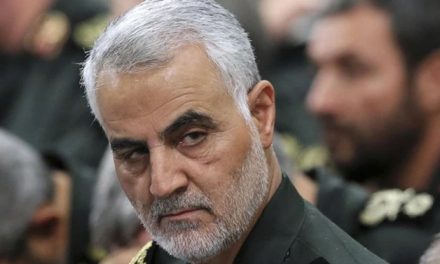Unlike Glenn Greenwald, I didn’t find Tom Friedman’s piece on Syria to be all that illogical. What Friedman is basically saying is that we caused a civil war in Iraq by removing the power structure at the top, but we were also indispensable in stopping the civil war (insofar as it is stopped) because we’re were the only ones with enough power to establish some semblance of order. Then Friedman is transferring that logic over to Syria, where a civil war is already underway. His idea is that we are the only ones who could stop the civil war in Syria.
Now, I’m not willing to stipulate to all Friedman’s facts, but it is possible to be responsible both for starting and ending a civil war. And it’s possible that American troops could play some role in ending a civil war that they didn’t start (see Libya, for an incomplete example). So, logic isn’t my problem with Friedman’s piece.
My problem is with virtually every other aspect of his argument. I’m glad that he says he will never advocate for American involvement in another Arab war ever again, but what I’d rather see is him promise is not to talk out his ass about matters of war and peace ever again.
Start with his formulation that Iraq equals Syria.
That’s because Syria is a lot like Iraq. Indeed, Syria is Iraq’s twin — a multisectarian, minority-ruled dictatorship that was held together by an iron fist under Baathist ideology.
That might sound right to someone who knows a little but not a lot about the Middle East. But it’s totally misleading. Almost nothing about Syria under Assad is the same as Iraq under Saddam Hussein. First of all, Syria is very closely aligned with Russia and Iran. Iraq fought a brutal decade-long war with Iran, and it was closer to France than it was to Russia. Secondly, the Syrian and Iraqi Ba’athist parties split apart in 1966 and have been antagonistic ever since. Third, the minority-majority nature of the two countries are flipped, so that ousting Saddam empowered the Shiities and pleased Iran while upsetting Saudi Arabia, while ousting Assad would have the exact opposite effect.
Our interest in invading Iraq was to create an escape hatch from a deteriorating sanctions regime that left us in a permanent containment mode with eroding international support for our efforts and increasing blowback. At least, that was a defensible interest. Our president doesn’t seem to have thought beyond the “Fuck Saddam. We’re taking him out” level of analysis.
Our interest in intervention in Syria is to break the back of Iran’s power and influence over Lebanon and Israel. It is an interest shared by Turkey, Saudi Arabia, the Gulf States, and Israel. It is an interest not shared by Iran and Russia.
What Iraq and Syria share in common is that they are both multi-demoninational and multiethnic societies where people have co-existed very well under a totalitarian government. In both cases, removing the power structure puts a quick stop to that coexistence, leading to sectarian and ethnic violence.
As human beings and members of the UN Security Council we have to look at humanitarian assistance and work towards peaceful solutions. But we didn’t create the problem in Syria and we’d be very foolish to take responsibility for the outcome there. We have a national interest in the outcome, but there’s no evidence that our presence is indispensable.
These things are relative anyway. Central to Friedman’s argument is that our troop surge in Iraq helped end the civil war in Iraq and gave them a decent chance at a bright future. But just four days ago the Washington Post reported that over 100 people had died in ethnically-targeted terrorist attacks that took place throughout Iraq.
Not to make light of our soldiers’ sacrifice, but they didn’t actually put Iraq back together again. Like I said, I can’t stipulate to Friedman’s facts.





